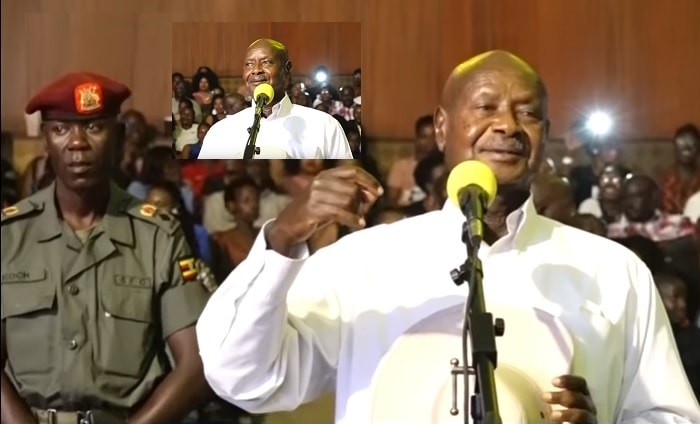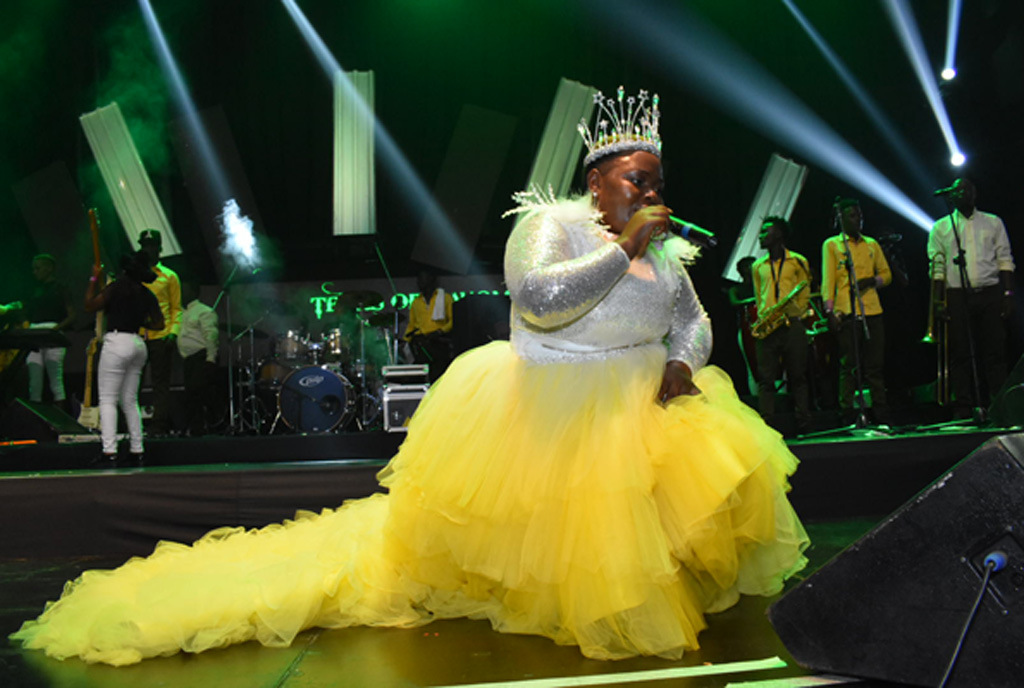[ad_1]
By Sean Yoes, AFRO Baltimore Editor, [email protected]
On Sept. 20, the “jam” of cars outside of the Serena Hotel in Kampala choked traffic in every direction Friday night; a very familiar sight in the metropolitan area of the Ugandan capital with about seven million people. The jam of people who swarmed the entrance of the Serena International Conference Center was exasperated by the heavy security presence precipitated by the imminent arrival of Ugandan President Yoweri Kaguta Museveni.
Museveni, the Ugandan strongman who has been president of the East African nation since 1986, was the special guest of Ugandan songstress Catherine Kusasira, the headliner of the “Tears of a Woman” concert. The popular Kusasira, known by many as “the Minister for Condolences,” is aligned very publicly with President Museveni and she literally stopped the show to facilitate what was essentially a rally for his re-election in 2021.

As a political observer for the past few decades, including the surreal months leading up to election day (Nov. 9) in 2016, the 976 days (as of Sept. 23) of Trump’s presidency has represented an incessant defecation upon all norms of American presidential politics. All this means is that nothing really shocks me anymore within the American political arena.
However, this is Uganda.
The Felliniesque atmosphere of Kusasira’s concert, with all of the pageantry, public solicitations of money (it was eerily refreshing to see public officials give and receive money openly) and the manifestations of the idigenous energy blew my mind all night long.

When the charismatic Pastor Wilson Bugembe hit the stage, frenzied fans willingly poured out folding money (with no urging) on the popular singer and evangelist as he engaged the audience.
The blatantly pro-Museveni event was not without controversy. Singer Ronald Mayinja seemingly delivered some presidential shade when he sang “Bizemu,” which is loosely translated as “they have repeated” apparently an anti-government reference to the bad old days of the dictator Idi Amin.
Museveni didn’t miss the dig and clapped back. “Singing is good because it is entertaining and it can also carry meaning,” the president said.
“However, there is someone who has been on the stage and distorted facts saying “Bizemu.” He’s not right because the government that we replaced was the one killing people, so that is why we went to the bush and took power,” added Museveni. “It is true people have been killed in the past few days, but it is being done by people we fought while coming to power. So, the message in your song that we are back to the old days is a lie.”
Museveni’s response to Mayinja’s song was part of a meandering stump speech delivered in english and Luganda the Bantu language of Ugandans (Uganda’s chief whip in Parliament, Ruth Nankabirwa translated Museveni’s english comments to the audience). During his extemporaneous address Museveni extolled the progress made during his administration, while he encouraged the judiciary to go harder on criminals, calling for murderers to be hanged.
The president’s tough language did not dissuade the concert’s emcee, Robert Segawa, from lobbying Museveni for money on the spot. In fact, I was told Segawa said something to the effect of, ‘Mr. President, be the first president to give money to a host of a concert.’ And to my astonishment the president marched right up to the stage and presented Segawa an envelope presumedly stuffed with Ugandan shillings.
Museveni’s largesse did not stop with the thirsty emcee; he also delivered an envelope (twice) to his friend and supporter Kusasira during her powerhouse performance, which included multiple changes into majestic costumes.
At one point, Kusasira sang her popular “Sweetie Wange,” a term of endearment in Lungandan and altered the lyrics to say, “Kaguta Wange I love you,” inserting the president’s name. I think that’s when President Museveni marched to the stage and presented Kusasira with the second envelope.
Sean Yoes is the AFRO’s Baltimore editor and author of Baltimore After Freddie Gray: Real Stories From one of America’s Great Imperiled Cities.
[ad_2]
Source link

